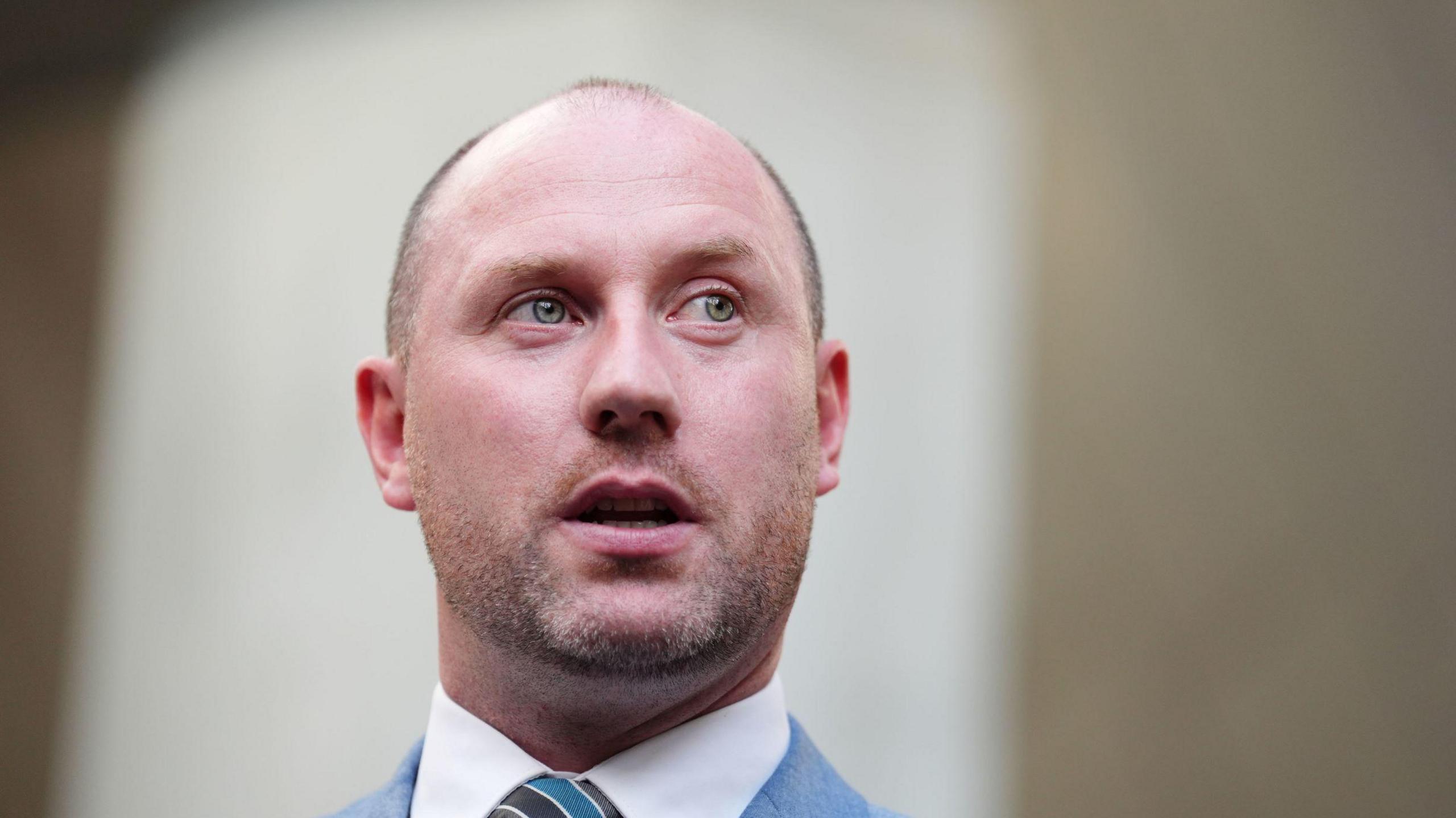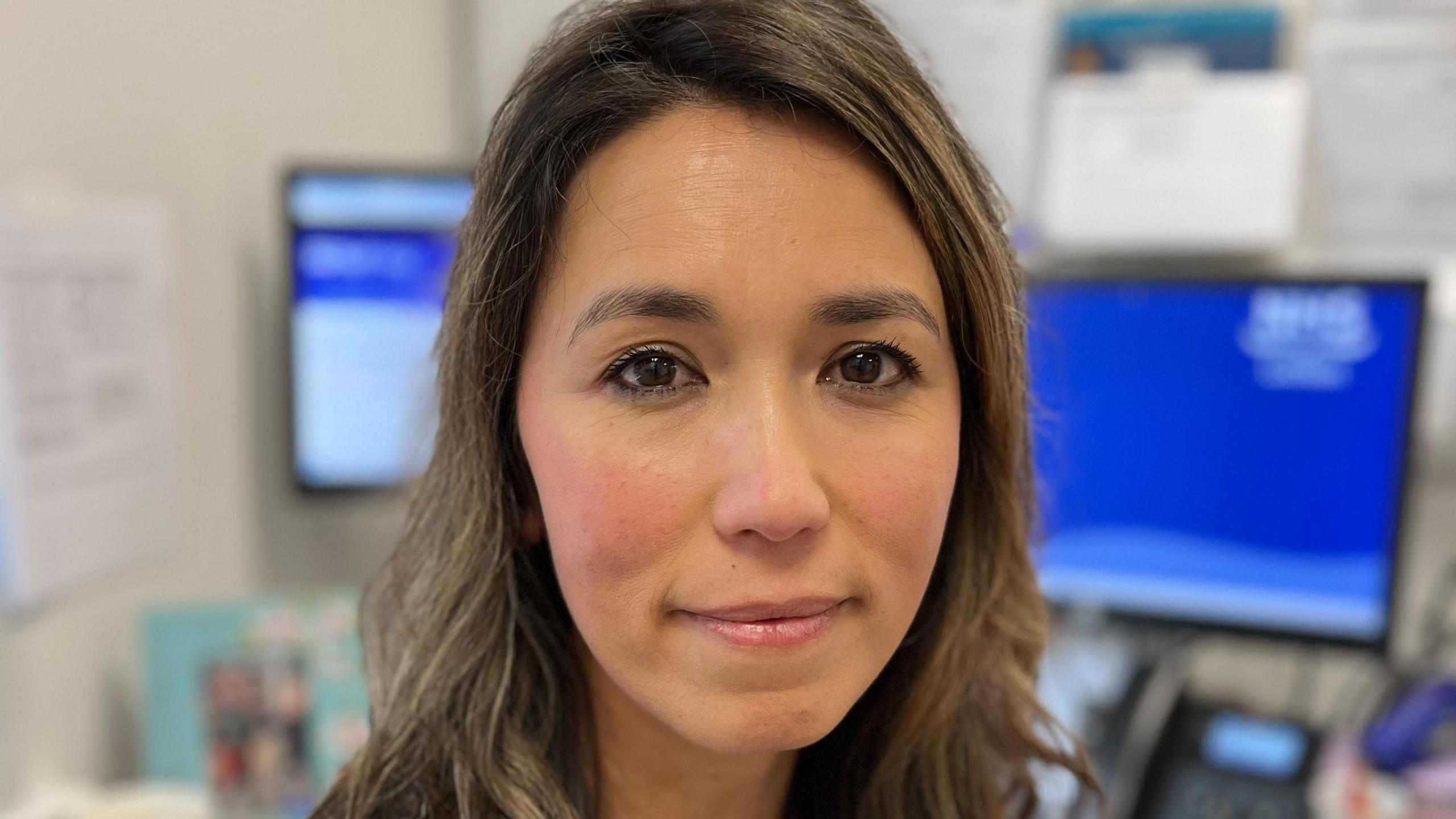Care at home to expand in plan to cut NHS waiting times

The Hospital at Home scheme will expand by at least 2,000 "virtual beds" during 2026.
- Published
Scottish government plans to reduce NHS waiting times will see weekend appointments for scans and tests introduced alongside an expansion in hospital care at home.
Health Secretary Neil Gray said the government was investing an extra £200m - out of a total health budget of nearly £22bn - in improvements, including greater use of digital technology.
However, the proposals were labelled "lip service and rhetoric" by unions, who said seven-day working for radiologists would leave staff burnt out.
The improvement plan comes after Audit Scotland said the government was unlikely to deliver on a pledge to deliver an additional 800 GPs by 2027.
The Scottish government said moving to a seven-day service for radiology would ensure 95% of referrals being seen within six weeks by March next year, using mobile scanning units and additional recruitment.
The Hospital at Home scheme, where a patient stays at home but is monitored virtually using apps and wearables and treated as if they were in hospital, will expand by at least 2,000 so-called "virtual beds" by the end of 2026.
Digital services in general will be increased across Scotland throughout 2026, in a bid to encourage people to find local services and receive NHS messages online.

Neil Gray said the plan would reduce waiting times
Gray said the "ambitious but realistic" proposals - called the Operational Improvement Plan, external - would make the NHS "more accessible" and cut into backlogs for patients to be seen.
He told BBC Scotland News: "Too many people are waiting for too long to receive diagnostic tests, or indeed, the follow-up treatment.
"We recognise there is a large amount of pressure within the system - we need to release that pressure and clear those backlogs. We're confident the investment being made here will reduce the longest waits, which improves the flow through the system."
'Stretched to breaking point'
Gray accepted that staff at the Golden Jubilee hospital in Clydebank, the flagship hospital for reducing waiting times, would need to work to "a greater extent" under the seven-day working plan.
Dr Iain Kennedy, the chairman of BMA Scotland, said staff were already under "huge pressure" with workloads.
He said: "There is already a disconnect between the number of scans and the consultant workforce required to report them, which means radiologists are being stretched to breaking point.
"The recognition that general practice is at the heart of our healthcare system is of course absolutely right, but this must be backed with action, including urgent direct investment into our GP practices, which will massively improve patient access and bring huge benefits across the NHS.
"Sadly again, we are seeing lip service and rhetoric around shifting the balance of care, but little action to back that up."
Dr Kennedy said "radical action" was required with funding plans, including more ambitious use of digital services.
Colin Poolman, the director of the Royal College of Nursing in Scotland, said there was "little new" in the plan and that it lacked detail.
He added: "Nursing staff reading this will be left scratching their heads wondering just how the aspirations in this plan will be achieved in reality."
Heart disease prevention
The plan is the Scottish government's fifth in four years for health services.
Other proposals include ensuring there are specialist staff in frailty teams in every A&E department in Scotland.
Flow navigation centres, which direct patients to the most appropriate service for their condition, will be expanded to include more services, while £10.5m will be invested in general practice focused on preventing heart disease and frailty.
Scottish Labour's health spokesperson Jackie Baillie said the plan was "recycled ideas" and displayed "low ambition" from the SNP,
The Scottish Conservatives' health spokesman Dr Sandesh Gulhane called the proposal a "desperate rehashed plan" that would not cover up "gross mismanagement" by the Scottish government.
- Published20 March

- Published3 December 2024
